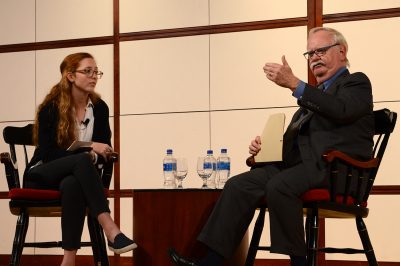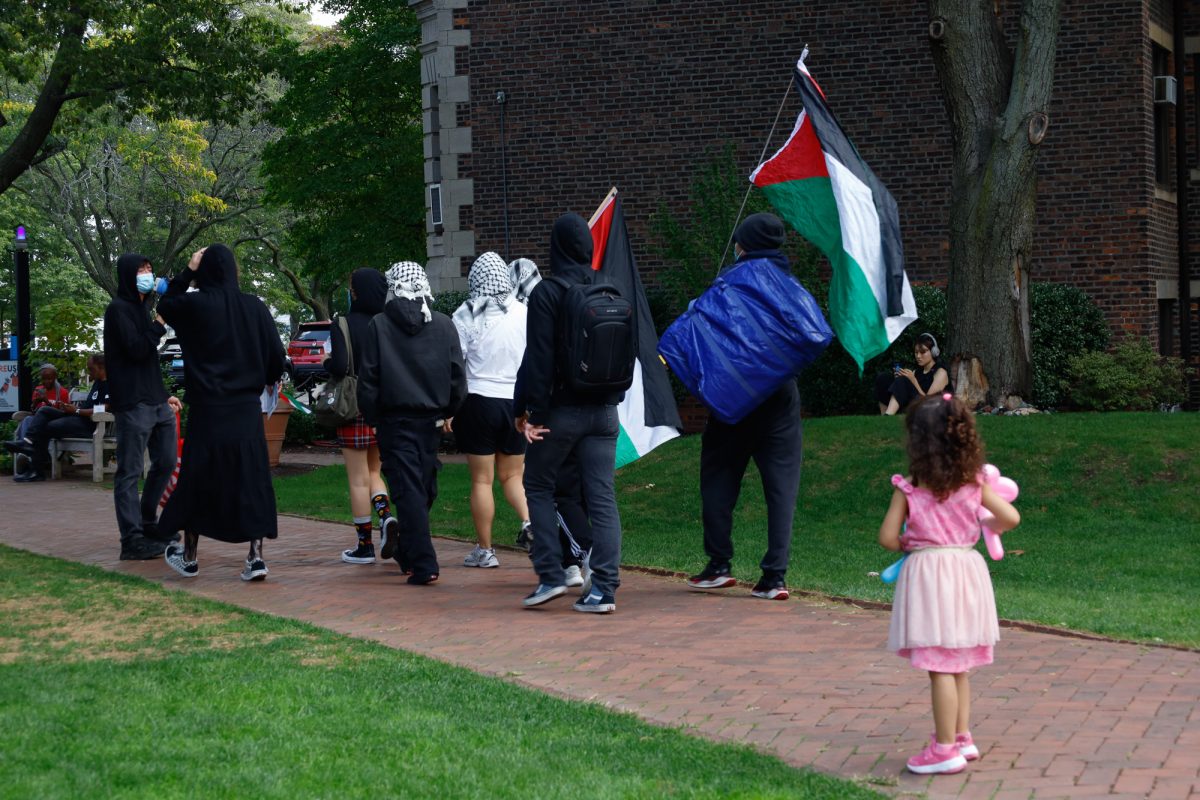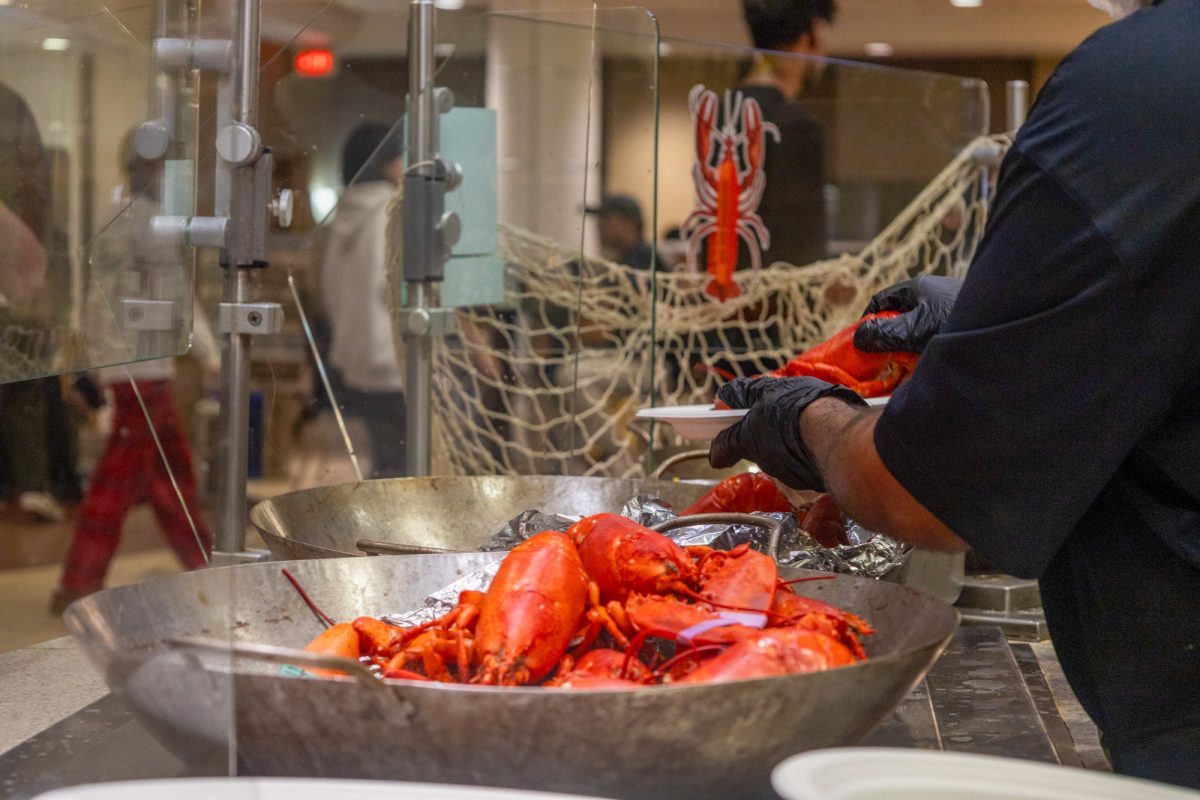
In the first event of its kind, The Daily Free Press hosted a public Q&A session with Boston University President Robert Brown Monday, addressing the topics of tuition hikes, his role as president and his plans for the future of BU.
Held in the Questrom School of Business’ Hariri Auditorium, the talk opened with a discussion of the new changes that have taken place at BU, including initiatives to increase interconnectedness between the various BU colleges, the introduction of the BU Hub and renovations of various buildings around campus.
Upcoming projects, Brown said, include expanding the Howard Thurman Center’s programs, increasing undergraduate financial aid and renovating various student residences, including Warren Towers.
One much-debated subject Brown addressed during the talk was tuition increases, in terms of how the money is being spent.
“Where does all the tuition go?” said Xiaoyang Xu, a senior in the College of Arts and Sciences, after the Q&A. “With that kind of tuition increase, I’m kind of curious where he spends all that money that improves the students’ life quality.”
A major financial goal for the university is to increase undergraduate financial aid and to develop and expand facilities, Brown said. Another goal is to maintain the current 10:1 student to teacher ratio.
The merger of Wheelock College and BU’s School of Education was also a prominent topic of discussion.
“The big part of the merger was adding resources and faculty to the School of Education,” Brown said. “I think of this merger as an expression of us to double down on our efforts in public education, which is going to be critically important to this country.”
Other major campus events that Brown discussed included the departures of various deans, including Questrom’s Kenneth Freeman and the School of Law’s Maureen O’Rourke, and plans to adapt student residences to better cope with global climate change.
Brown also addressed the #MeToo movement, stating that it is an extremely important and pertinent issue, especially on college campuses.
“We’re focused on trying to have zero incidences of harassment and assault,” Brown said, “knowing pragmatically that zero in a population of 33,000 students and 10,000 staff is a really hard number to achieve.”
Several measures have been introduced over the years, he said, including the creation of the Sexual Assault Response and Prevention Center, a revision of BU’s Title IX policies and online sexual assault and harassment awareness courses for both students and faculty.
“Personally, I was really thankful that he brought up the #MeToo movement,” said Jessica Oshanani, a senior in the College of Communication. “I would have liked to hear what the punishment may have been if something were to happen though.”
When asked what he does for his job, Brown said that his primary role is working with senior leadership to decide the future direction of the university, the “strategic plan.” His other duties include fundraising, Brown said.
Amid the more serious topics, Brown addressed lighter fare, including a question that has long been discussed among BU students: what is inside the small rolling backpack Brown is often seen wheeling around campus? The backpack is his “conscience,” Brown said, filled with folders and projects he works on in his free time.
“If I take those folders and put them in a pile someplace, I forget about them,” Brown said.
This Q&A was important to help connect students with what is going on at their university, COM senior Henry Kruell said.
“For a lot of students, President Brown is a very abstract figure in the university,” Kruell said. “I don’t think they know what he does day to day or how his work impacts us.”
Students who attended were likely curious about the general progress of programs at the university, BU spokesperson Colin Riley said before the Q&A.
“They want some overarching look at what’s taking place,” Riley said, “what’s going on in the university as far as new programs are concerned, new facilities and so on.”
Brown has a strong record in improving the university, Riley said.
“The president has had a remarkable record of success,” Riley said. “There’s tremendous growth in interest in the university, … you can see, by applications. The classes are very competitive. The university’s reputation is much stronger and continuing in that trend.”
When asked how BU students can contribute to the university’s mission, Brown said students should do their best in school and try to form a community.
“The better our student community is, the more resilient it’s going to be when we have difficulties,” Brown said. “And … the more welcoming it’s going to be to a diverse student body coming in as we’re trying to recruit them. How you perceive the institution is how it’s perceived by outsiders, right?”



















































































































Dylan • Sep 25, 2018 at 6:52 pm
His response to the question if tuition money allocation was a complete joke. It’s a failure of reporting that the Daily Free Press didn’t push him on it.
This article as a whole is depressing uncritical and filled with jargon. Brown is the highest paid president in the history of higher education. That kind of power has to justify itself. “Brown has a strong record in improving the university” isn’t good enough. What has he actually done? What has the author of this article or the rest of the newspaper staff done to try to figure that out? Parroting a university spokesperson isn’t reporting, it’s toadyism.
The students deserve better. Tuition money made this place what it is, and it continues to do so. Crediting administrators for the school’s “success” requires proof.